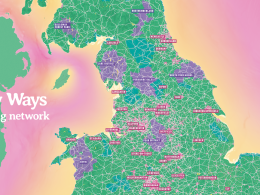Cybersecurity experts warn that your passwords are particularly vulnerable as soon as you leave the safety of your home or office. “Travel exposes you to a range of new digital risks,” says Stepan Solovev, CEO & Co-founder of Soax. “It opens up a whole new world where your digital data is at risk of being compromised by cyber-attacks.”
Travelers often neglect digital security during their trips, breaking from their usual routines and adopting risky practices. Actions such as connecting to unfamiliar Wi-Fi networks or creating new accounts with weak passwords can be highly dangerous.
Why Are Your Passwords at Risk During Travel?
- Exposure to Unsecured Networks
Public Wi-Fi networks in places like airports, hotels, and cafes are common but often lack strong security. These networks can easily be intercepted by cyber attackers, who can capture data including passwords. - Increased Online Activity
Travel often involves more online activity, such as booking activities, checking flight details, and reserving accommodations. This increased activity heightens the risk of exposure and may lead to unsafe practices, like using the same password across multiple sites. - Targeting by Cyber Criminals
Tourists are often seen as easy targets by hackers due to their perceived lack of vigilance. Scams may include fake Wi-Fi networks, phishing emails that look like they come from travel suppliers, and other deceptive tactics aimed at stealing personal information.
Precautions to Take to Protect Your Passwords While Traveling
You don’t need to be a cybersecurity expert to stay safe. Here are some practical steps recommended by professionals:
- Use a Virtual Private Network (VPN): A VPN secures your internet connection, making it much harder for hackers to intercept your data and passwords. Always activate your VPN when connecting to public Wi-Fi.
- Enable Two-Factor Authentication (2FA): This adds an extra layer of security by requiring not only a password and username but also a second form of verification, such as a token or fingerprint.
- Avoid Public Wi-Fi for Sensitive Transactions: Refrain from entering sensitive information like credit card details or passwords over public Wi-Fi. Use your mobile network instead for such transactions.
- Use Strong, Unique Passwords: Ensure that each of your accounts has a different password. A reliable password manager can help you keep track of these without needing to memorize each one.
- Regularly Update Your Security Features: Keep your operating system and applications updated to benefit from the latest security patches and bug fixes, which help protect against new threats.
As Stepan Solovev points out, “Protecting your information starts with awareness. By recognizing the risks and taking simple preventive measures, you greatly reduce your chances of falling victim to cybercrime.”
While vacations are meant for relaxation, they should not come at the cost of your digital security. Implementing these measures can significantly reduce the risk of cyber incidents, making your travel experiences safer and more enjoyable. So remember, ensuring your safety is as crucial as packing your bags.









